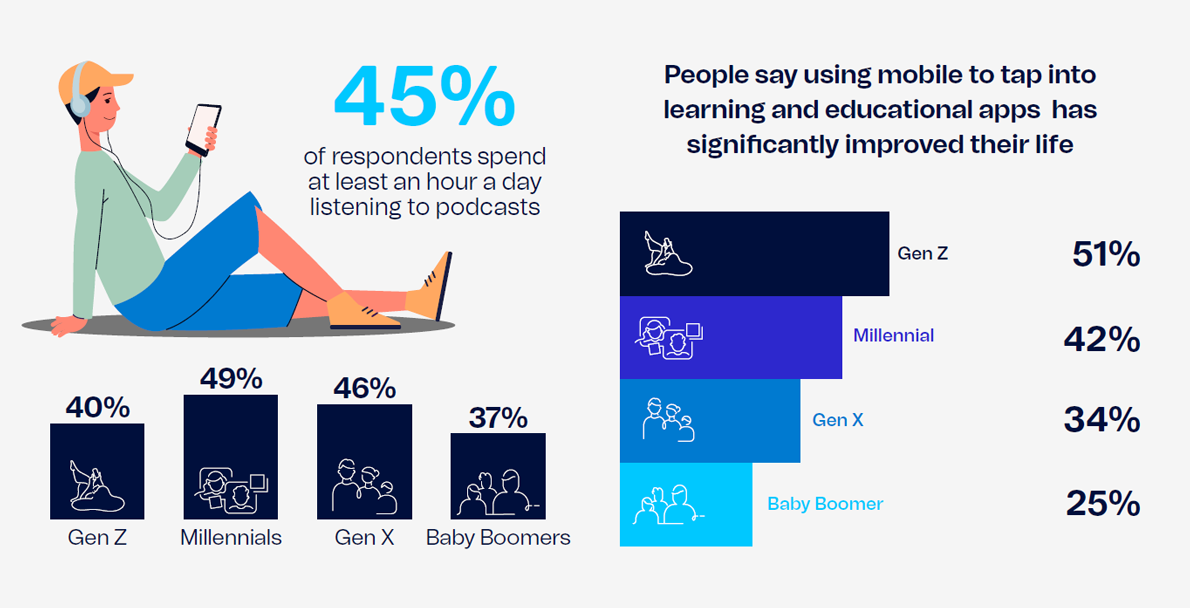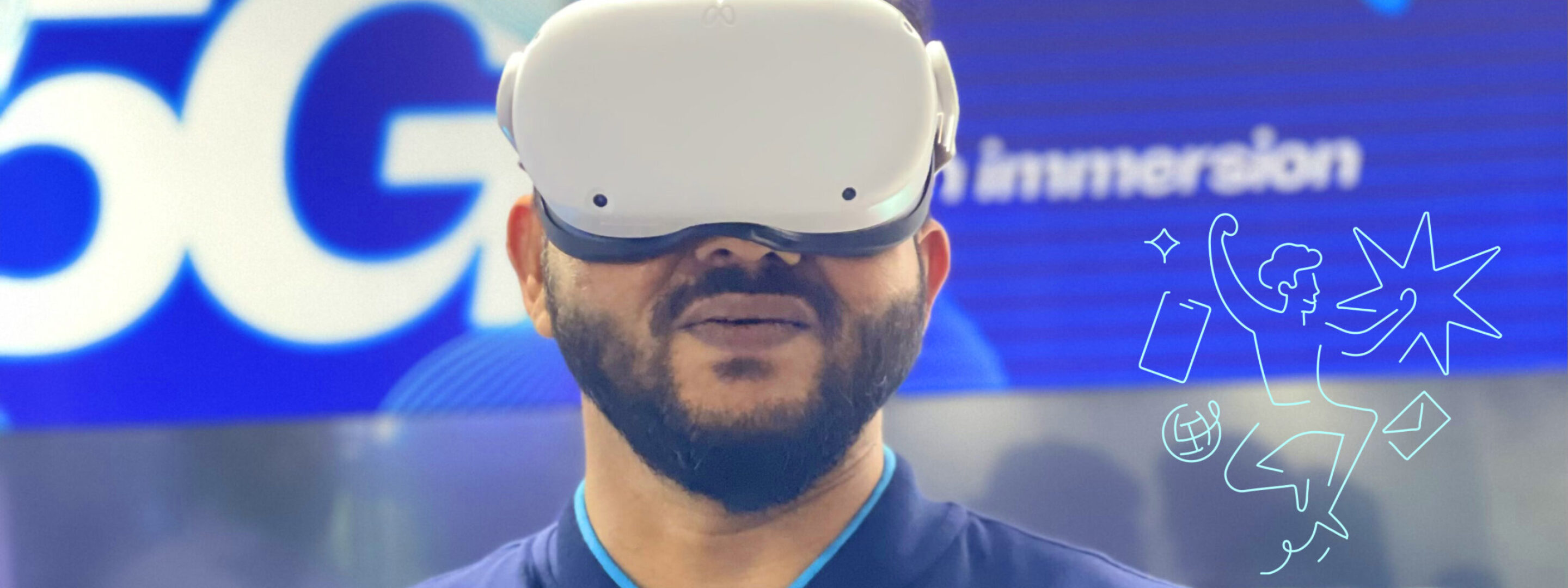Telenor Asia Digital Lives Decoded (Play)
Telenor Asia Digital Lives Decoded (Play)
From virtual worlds to real-life communities, mobile access has flipped how we spend our “downtime” on its head.
The third instalment in our Digital Lives Decoded series examines the changing spectrum of people’s leisure-time pursuits and pastimes – supercharged by a more digitally-savvy, post-pandemic population.
Two-thirds of people socialise more online than they do in real life, but rather than this being a negative trend, more than half of our respondents feel more socially connected.
People are convincingly upbeat about mobile’s impact on their social lives, helping them stay better connected with loved ones and build virtual communities with strangers based on shared interests. People also spend much of their downtime tapping into online education or on-the-go learning apps. Close to one-third access educational apps daily, while four in ten believe the learning enabled by mobile technology has significantly improved their lives.
The standout finding from this report is around gaming. Mobile access has changed how people game and who gamers are. Thanks to the mobile, gaming has become a mass phenomenon, embedding virtual interactions and virtual worlds into daily life. This pastime is more inclusive and accessible than ever, reaching across genders and generations. The increased number of people playing games is also driven by a relatively recent phenomenon: social gaming. Close to half of those surveyed expect to spend even more time on this in the next two years.
We see that gaming is positively impacting real-life communities, reinforcing relationships and transforming how we go about daily tasks. With that growth comes higher expectations of network operators as people seek more dependable, faster networks. Consumers recognise that this comes at a premium.
The metaverse has enormous potential as a gaming platform of the future. While it is yet to capture the interests of consumers fully, people do recognise that their mobile phones have put a portal to the future in their hands as the metaverse slowly edges towards reality. The growing interest in the metaverse is creating an opportunity for telecom operators to expand beyond the traditional towards new capabilities and services – becoming not only an enabler of the technology through the provision of 5G capabilities but also a co-creator in the metaverse.
With all the new possibilities paved by the mobile, the average mobile user today literally has the world at his or her fingertips. Moving from passive users to active co-creators in virtual realities, they will become the new face of the customer that we as network operators and businesses need to understand and keep up with. We hope the third part of our study will help to shed some light on the changing face of today’s consumers as they live, work and play.
Jorgen C. Arentz Rostrup
Head of Telenor Asia
Overview
“Digital Lives Decoded” is a three-part series – released in conjunction with Telenor’s 25th anniversary in Asia – looking at the role of mobile relationships in how we live, work, and play. The third and concluding instalment surveyed over 8,000 consumers across eight markets in South and Southeast Asia on the impact mobile devices are having on the way we spend our downtime.
Consumers in Asia are turning to mobile devices to boost their leisure time, switching downtime pursuits into ‘up-time’ opportunities. Nine in ten people are more dependent on their phone for leisure now than two years ago and nearly half (47%) say their reliance has increased significantly.
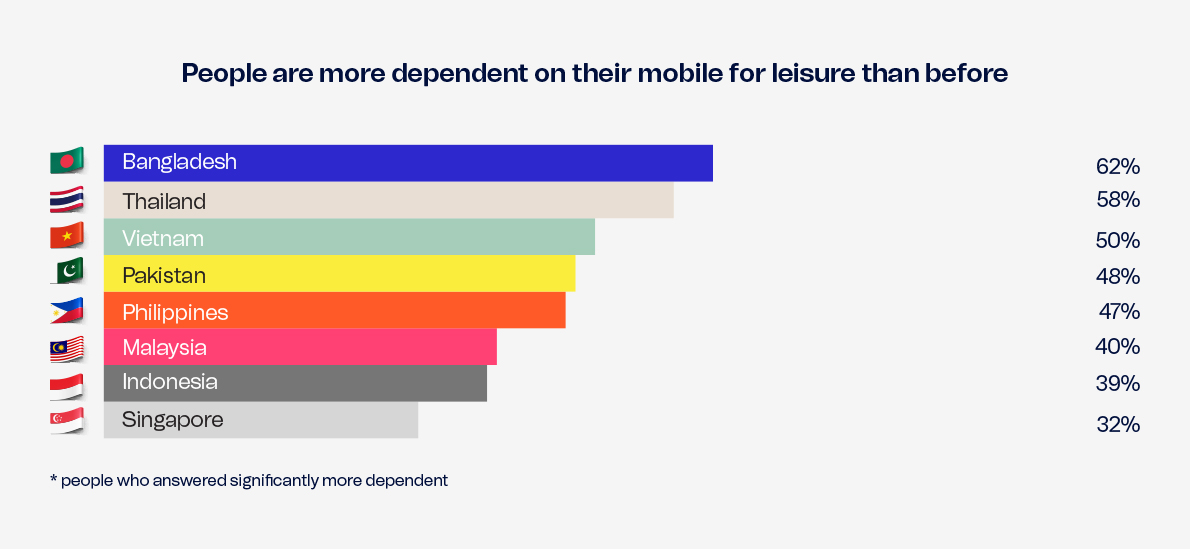
The habits we formed during the pandemic seem to have become hard-wired in the way we live our lives today. Two-thirds (66%) say they now socialise more online than in real life and over half now feel more connected to friends and family. While younger generations are spending more time socialising online than their older peers, Baby Boomers feel most connected to their loved ones as a result of mobile technology.

Around half of respondents spend more than three hours a day using social media, and just over one in ten (12%) spend more than seven hours per day. This is greater than the time spent on gaming, streaming content, listening to music or podcasts and investing, and looks set to grow.
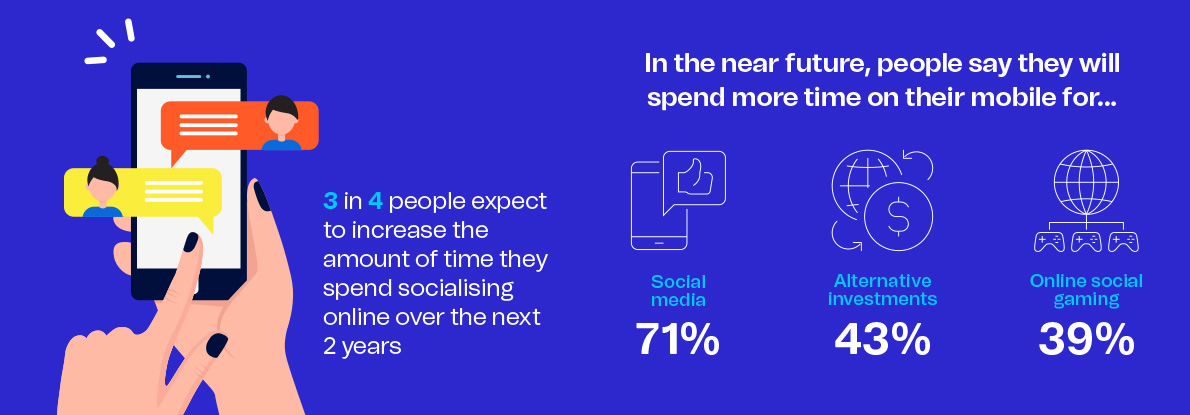
The new face of gaming is mobile
Across the region, China, Japan, and South Korea lead the gaming market, but Indonesia, Vietnam, the Philippines, and Thailand are quickly catching up. This surge in gaming is evident among respondents surveyed. Four out of five respondents play mobile games in some way, with close to a third (31%) playing every single day. And it’s not just the stereotypes of young men playing; our research shows that there is an even split among men and women.
Just as social media has allowed communities to create content and interact with each other, we have also seen the growth in social gaming taking these opportunities one step further – empowering people to step into and interact with others in virtual worlds.
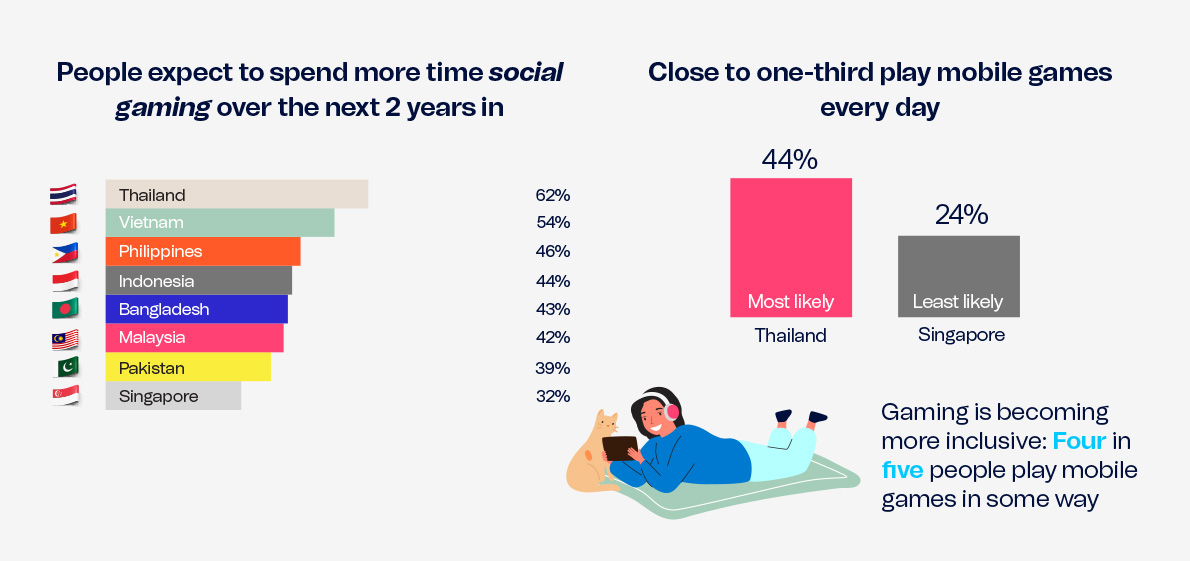
Mobile devices are turning downtime pursuits into upside opportunities
Respondents across the region are increasingly looking to their mobile devices for personal upskilling and development. 40% of respondents are using mobile devices to tap into learning and educational apps or websites, with women and younger generations most likely to experience the benefits. More than half of Gen-Zs (51%) surveyed said that learning on their mobile has significantly improved their quality of life.
